A SWIMMER'S GUIDE TO BREATH CONTROL: DRILLS TO BOOST YOUR LUNG CAPACITY
It's no secret that swimmers have some of the best lung capacities of any athlete. Being able to control your breathing is a fundamental and challenging part of the sport.
This lesson will provide you with a set of fun and challenging swim sets and drills designed to improve your breath-holding ability, increase your lung capacity, and give you more control over your breathing.
Dive Into: Drills for Better Breath Control
- The Secret to Breath Control: CO2 Tolerance
- Drills for Restricted Breathing
- Drills for Underwater Work
- Gear and Tools to Help
- A Final Word on Racing
- Frequently Asked Questions
The Secret to Breath Control: CO2 Tolerance
When you hold your breath, that uncomfortable, urgent feeling you get is not from a lack of oxygen. It is your brain reacting to the build-up of carbon dioxide (CO2) in your blood.
The drills in this guide are not just about increasing your lung capacity; they are about training your brain and nervous system to tolerate higher levels of CO2. A swimmer with high CO2 tolerance can stay underwater longer and remain calm and relaxed without that panicked urge to breathe.
Drills for Restricted Breathing
1. Hypoxic Swimming: Do a set of your chosen distance (e.g., 3x400) and vary your breathing pattern. For example:
- 1x50 breathing every 3rd stroke
- 1x50 breathing every 5th stroke
- 1x50 breathing every 7th stroke
- 1x50 breathing every 9th stroke, and then repeat the cycle.
2. No Breaths In and Out of Turns: This is a perfect practice to incorporate into any set. For every turn, take your last stroke into the wall and your first stroke out of the wall without taking a breath.
3. Breathless Relays: As a team, sprint a relay of 25s or 50s freestyle or butterfly, but with no breathing allowed. The catch: if any person on the relay takes a breath, the entire team is penalized with an extra swim!
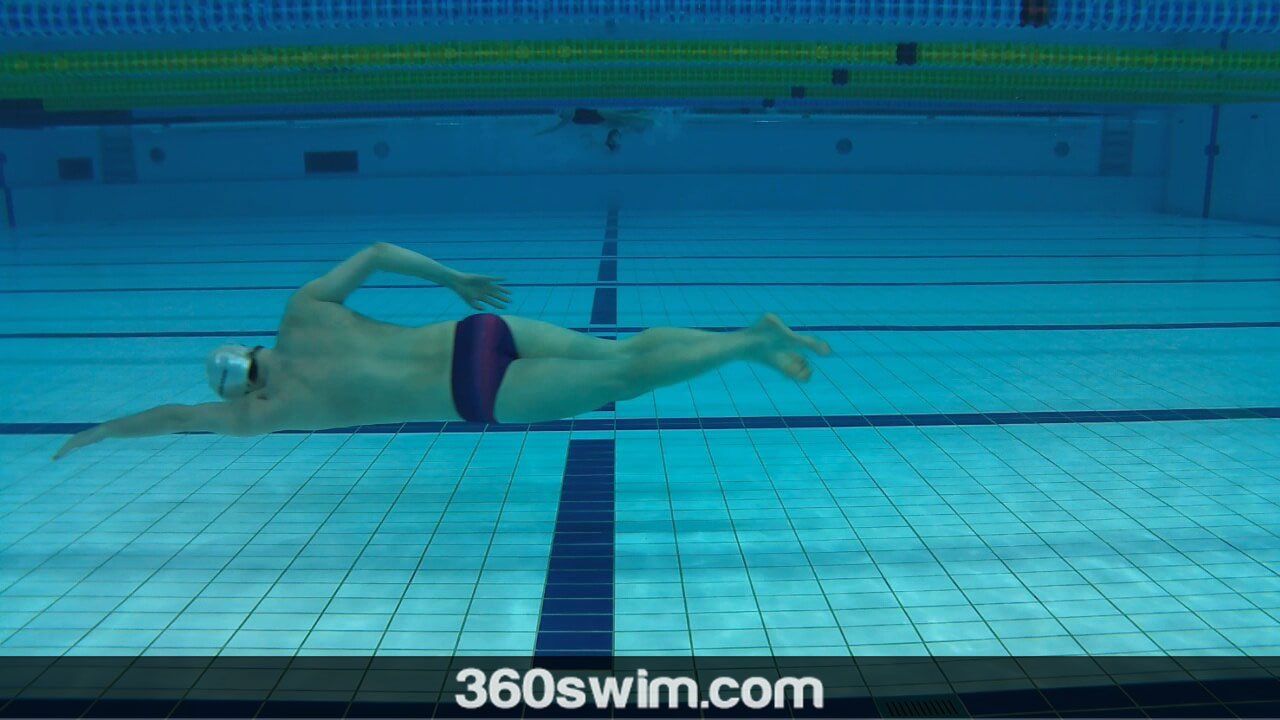
4. Lungbuster This is an extreme drill for advanced swimmers. Exhale all your air and when no air is in your lungs, push off the wall and either sprint fly or free for a 25 or sprint fly kick underwater while in a streamline with maximal speed of undulation.
Drills for Underwater Work
As coach Richard Quick used to say, the underwater is the "5th stroke." He describes it well in his Championship Winning Swimming Videos.
- Good Ol' Underwater Swims: Try a set of 40x25m underwater on a challenging interval. You will soon notice it gets easier.
- Sprint Fly Kicks on Your Back: Do a set of sprint butterfly kicks on your back in a tight streamline. This is a great way to even out your kicking muscles, and it's harder to hold your air in this position. If water gets in your nose, use a nose plug or learn the human nose plug technique.
- Flags-to-Flags Underwater: Pick a distance (at least 300m) and swim it where the only part you are on the surface is between the backstroke flags. You swim from the flags to the wall, turn, and push off back to the flags, all underwater.
Gear and Tools to Help
1. Front Snorkel: A front snorkel is a wonderful tool for limiting your oxygen intake, which makes your lungs work harder. It's also fantastic for working on your head and body position.
DDavid Marsh, a former head coach at the Auburn University in Alabama, is fond of this simple tool and describes its use in his DVD set The Auburn Way.
2. Respiratory Trainers: You can also train your lungs on dry land. A simple tool like the PowerBreathe or the more high-tech AiroFit provides resistance for your diaphragm, acting like a "gym for your lungs."
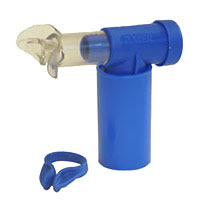
A Final Word on Racing
One last note: remember that when you are racing, it is not a good idea to go into an oxygen debt. The goal of these drills is to make your breathing more efficient, not to teach you to hold your breath in a race.
With a perfect stroke, you can take as many breaths as you need without losing speed. In fact, the more oxygen you get, the faster you will swim. Learn a proper bilateral breathing rhythm and use it.
Feel free to leave a comment if you know of any other interesting ways to help your lungs get fit.
Frequently Asked Questions
Why is breath control so important for faster swimming?
Superior breath control allows a swimmer to maintain a streamlined body position for longer and builds tolerance to CO2, which helps you stay relaxed and maintain your rhythm under pressure during a race.
What is 'hypoxic swimming'?
Hypoxic swimming involves breathing less frequently than you normally would. The goal is not to deprive yourself of oxygen, but to train your brain to tolerate higher levels of CO2, reducing the panicked urge to breathe.
Should I hold my breath during a race?
No. The goal of breath control training is to make you more efficient, not to go into oxygen debt. In a race, you should take as many breaths as you need to stay powerful.
What is a 'lungbuster' set?
A lungbuster is an extreme breath control drill. You start by exhaling all your air before pushing off the wall and then sprint for 25 meters. It's an incredibly challenging drill for advanced swimmers.
Can I improve my lung capacity outside of the pool?
Yes. Devices like the PowerBreathe or AiroFit are respiratory training tools that provide resistance for your diaphragm, acting like a 'gym for your lungs' to improve breathing strength.
 LNURL1DP68GURN8GHJ7URP0YHRXD3SWDMKJMFWVDHK6TMVDE6HYMRS9A4HSCNCWFXSH3NN0H
LNURL1DP68GURN8GHJ7URP0YHRXD3SWDMKJMFWVDHK6TMVDE6HYMRS9A4HSCNCWFXSH3NN0H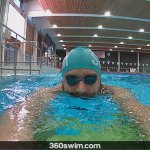




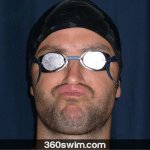



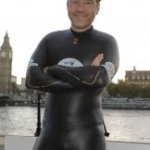

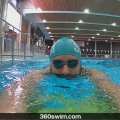



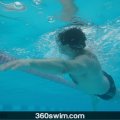




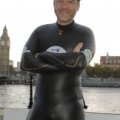


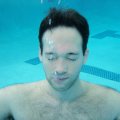
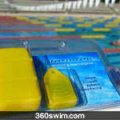



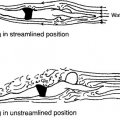
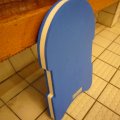
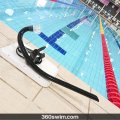
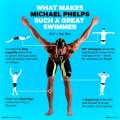
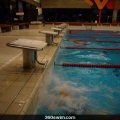
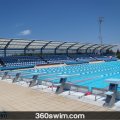

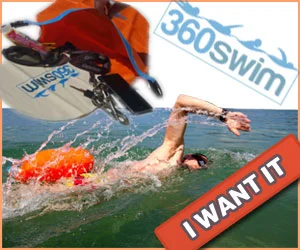

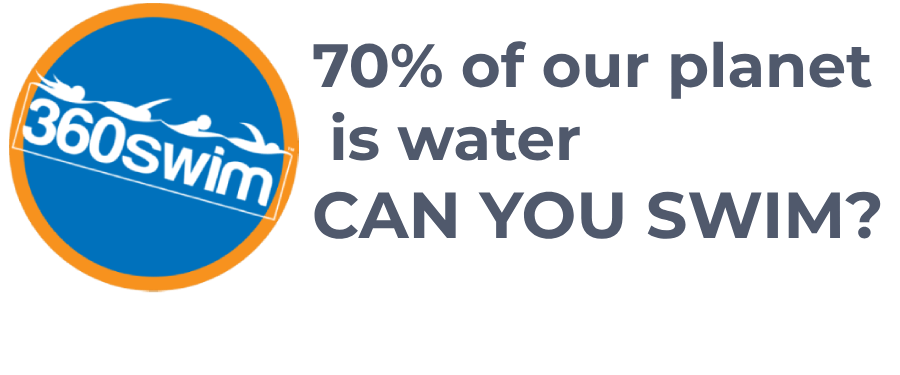

Comments (12)
>>>}=O >>>}=o
>>>}=O
>>>}=o >>>}=O
If you hyperventilate before going under you will artificially reduce the CO2 levels in your blood.
CO2 is the trigger that makes you want another breath.
If your O2 level in your circulation goes below the level required for consciousness before the CO2 trigger kicks in... you are in real trouble.
I hope the exercises suggested on this blog would only be attempted in a pool attended by a lifeguard.
In answer to your original question, though I'm not a medic, I don't think there's any long-term damage from short-term hypoxia. As long as your brain gets enough O2 within 8 minutes you should suffer no long-term damage.
Hyperventilation is good, but only in moderation. I'd suggest to take only about 2-3 deep breaths before attempting to hold breath for a long period of time. Any more than that is not a good practice.
As suggested in the comment above, if you are not a skilled competitive swimmer (who this post was meant for), please do not attempt to hold your breth for a long period of time in a pool without proper supervision (lifeguard, swimming insructor etc.).
Good luck
By breathing once per stroke, I kept my heart rate down, could do slower and more powerful strokes.
15x100m on 1:15
breathing 5, 7 and 9
But it's not just in competition, we all know you're not going to do something on race day you haven't done in training.